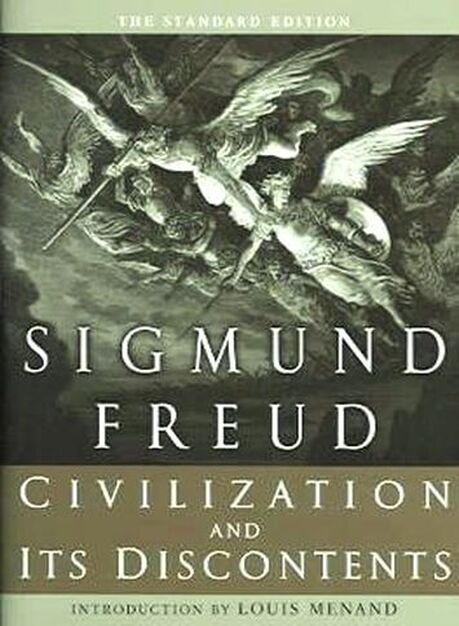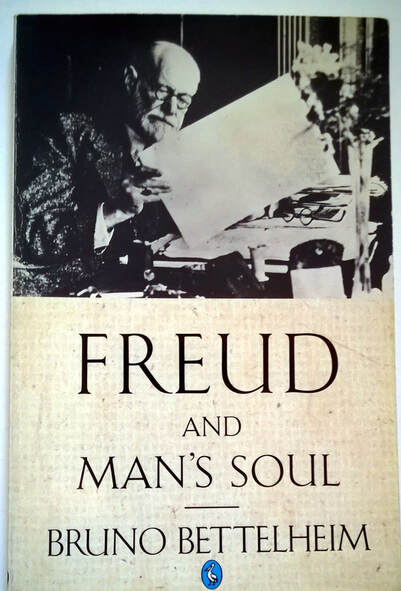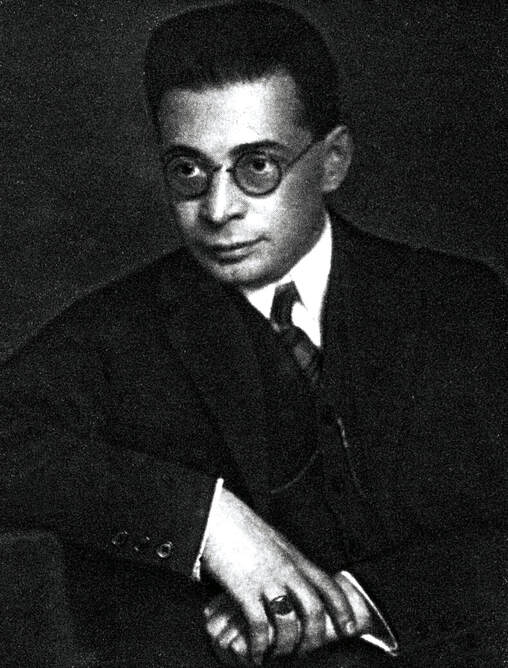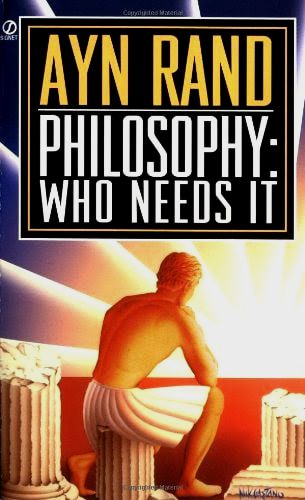HAPPY DISCONTENTS
& the Unreality Principle
.
by Michael Tsarion
|
|
The masses have never thirsted after truth. Whoever can supply them with illusions is easily their master
- Gustave Le Bon |
Sigmund Freud’s final book on psychology, published in 1930, was entitled Civilization and its Discontents. Some of Freud’s friends and associates complained that this title isn’t a proper translation from the German. Psychologist Bruno Bettleheim noticed that much of Freud’s writings had been repeatedly taken out of context and mistranslated to give readers, and the general public, the impression that Freud was a committed materialist.
|
|
I discovered that reading Freud in English translation leads to quite different impressions from those I had formed when I read him in German - Bruno Bettelheim
|
|
|
Sigmund Freud (1856-1939) was one of the greatest geniuses of the twentieth century. He single-handedly brought down the whole Rationalist movement, proving that humans are by no means in total control of their thoughts and behavior. His final masterpiece asks one of the great questions - is civilization here to stay, or is it doomed to eventually collapse? Freud mused on whether civilization is even tenable. Is it making humans happier, or do we pay a terrible price for the boon of civilization? What forces, internal and external, exacerbate our discontent with reality? How powerful is our suppressed death-wish?
|
|
In Freud and Man’s Soul, Bettelheim explains why this travesty occurred. He indicts the APA, AMA and related orgs for purposely slanting Freudianism in a prejudicial direction. They made it clear, in many statements, that Freudianism was not wanted in America.
|
|
Instead of instilling a deep feeling for what is most human in all of us, the translations attempt to lure the reader into developing a “scientific” attitude toward man and his actions, a “scientific” understanding of the unconscious and how it conditions much of our behavior - Bruno Bettelheim
The translation of those personal pronouns into their Latin equivalents - the ego and the id - rather than their English ones turned them into cold technical terms, which arouse no personal associations. In German, the pronouns are invested with deep emotional significance, for the readers have used them all their lives - ibid Some of the translations are so obviously wrong that it is difficult to see why they were ever made, and even more difficult to see why they were not corrected long ago...saying something quite different from what Freud had in mind, and from what he was talking about in the rest of the article or book at hand, they baffle the reader - ibid |
|
Famous personalities - such as Marilyn Monroe, Mongomery Clift, and others - who had undergone and benefited from Freudian therapy, were scurrilously lampooned in the media. Actors and film-makers who produced excellent one of a kind movies featuring and praising psychoanalysis were horrified to find American audiences voting with “thumbs down” to their intellectually stimulating fare.
American audiences disliked witnessing revered mega-stars of the silver-screen - such as James Stewart, Raymond Burr, Joan Crawford, Cliff Robertson, Gregory Peck, Ingrid Bergman, Humphrey Bogart, Barbara Stanwyck and Tippi Hedren, etc - playing what they saw as “weak” characters, beset by psychological problems. John Wayne doesn’t have a mother-complex, all right?
At least four films made by legendary director Alfred Hitchcock, with psychological themes, were box-office flops. One of these, Spellbound, was openly dedicated to Sigmund Freud and psychoanalysis.
It didn’t work. Hitchcock reluctantly took the hint. America was anti-psychological, and would not change, no matter what. What Americans wanted from a movie was blood and guts, so he gave it to them. His final psychological movie was the blockbuster Psycho, based on the book by Robert Bloch. Audiences adored it.
Mix psychologiy with voyeurism, sex, sadism, necrophilia, horror and murder, and bingo the hordes wrapped themselves round the block, wetting themselves to get in. The American movie-going public screamed for more, and boy did they get it. Psycho spawned an endless chain of “slasher” flicks. It’s a multi-million-dollar industry in America alone.
American audiences disliked witnessing revered mega-stars of the silver-screen - such as James Stewart, Raymond Burr, Joan Crawford, Cliff Robertson, Gregory Peck, Ingrid Bergman, Humphrey Bogart, Barbara Stanwyck and Tippi Hedren, etc - playing what they saw as “weak” characters, beset by psychological problems. John Wayne doesn’t have a mother-complex, all right?
At least four films made by legendary director Alfred Hitchcock, with psychological themes, were box-office flops. One of these, Spellbound, was openly dedicated to Sigmund Freud and psychoanalysis.
It didn’t work. Hitchcock reluctantly took the hint. America was anti-psychological, and would not change, no matter what. What Americans wanted from a movie was blood and guts, so he gave it to them. His final psychological movie was the blockbuster Psycho, based on the book by Robert Bloch. Audiences adored it.
Mix psychologiy with voyeurism, sex, sadism, necrophilia, horror and murder, and bingo the hordes wrapped themselves round the block, wetting themselves to get in. The American movie-going public screamed for more, and boy did they get it. Psycho spawned an endless chain of “slasher” flicks. It’s a multi-million-dollar industry in America alone.
|
|
Hitchcok's masterly film Psycho (1960). A box-office smash, audiences ran screaming from theatres all over America, thumbs held high. None of them realized that the name of the film Psycho, denotes psychology, the Greek word psyche meaning "soul." Audiences got the sex and violence, but little else. (Other films by Hitchcock with psychological themes are Marnie, Spellbound, Birds and Vertigo.)
|
|
|
|
So adamant were the American analysts that psychoanalysis must be restricted to physicians that in 1926, the New York State Legislature passed a bill declaring illegal any analysis not considered by a physician. Not satisfied with this, the Americans continued their battle within the International Analytical Association, and threatened to break away from the international psychoanalytical movement unless their views were accepted - Bruno Bettelheim
|
Freud warned colleagues in the U.S. not to bother fussing about what was happening to the titles and text of his books. He told them to desist trying to defend him. It wasn’t worth their trouble petitioning the APA or his American publishers. As far as he was concerned, Americans were far too extroverted and infantile to “get” what he was talking about. One look at their lifestyles, pastimes and magazine commercials, etc, confirmed that it was a complete waste of time hoping they’d ever see the value of psychoanalysis. He counselled friends, like Bettelheim, to save their breath.
|
|
In his work and in his writings, Freud often spoke of the soul of its nature and structure, its development, its attributes, how it reveals itself in all we do and dream. Unfortunately, nobody who reads him in English could guess this, because nearly all his many references to the soul, and to matters pertaining to the soul, have been excised in translation - Bruno Bettelheim
|
|
|
Bettelheim's excellent book reveals how the American Psychological Association (APA) deliberately and maliciously misinterpreted and subverted Freudianism. Bettelheim expressly tells readers that the only element of Freud's practique that interested American medical organizatons was that geared to making the public "adjustable" to government control. In other words, if a treatment helped get the average Discontent back in line, it was to be hastily adopted. The rest of it could be trashed. The Catholic Churh agreed. They didn't care to have their priests put out of business by the advent of psychoanalysis. They wanted their confessionals crammed with sinners wracked by despair and guilt. Consequently, as far as America was concerned, Freud was persona non grata. Bettelheim himself came under attack and was professionally assassinated for his well-meaning attempts to change America's mind about his mentor's practique.
|
|
In an interesting essay entitled Why Freud Hated America, the author states that Freud noted that, during his only short visit to the United States, he was physically sicker than he’d ever been in his life. After contracting his tenth symptom, he decided to return to Europe, and never return.
The theme of Civilization and its Discontents concerns the condition and fate of socialized humans, those calling themselves “civilized.” What does the term really allude to? And more to the point, is civilized man any happier now than he was as a creature in the wild?
Freud did not believe man was essentially happier in his urban environments. This is because, in order to be “civilized,” one’s basic instincts must be drastically suppressed and denied. In other words, there’s a great cost involved in being civilized. One isn’t able to do as they please, not without serious consequences.
However, as Freud brilliantly elucidated, punishment for antisocial behavior isn't administered exclusively by external sources. Internally, civilized people hear a penalizing voice in the form of the superego, the part of us that judges our actions and relentlessly hectors us for the slightest infraction of socially-imposed standards.
Although the superego develops continually through life, the first seven years are crucial. By seven, the likes and dislikes of one’s parents are well and truly introjected. Their expectations, once internalized, become the permissive and prohibitive voices within our heads, conditioning our thinking and behavior.
The theme of Civilization and its Discontents concerns the condition and fate of socialized humans, those calling themselves “civilized.” What does the term really allude to? And more to the point, is civilized man any happier now than he was as a creature in the wild?
Freud did not believe man was essentially happier in his urban environments. This is because, in order to be “civilized,” one’s basic instincts must be drastically suppressed and denied. In other words, there’s a great cost involved in being civilized. One isn’t able to do as they please, not without serious consequences.
However, as Freud brilliantly elucidated, punishment for antisocial behavior isn't administered exclusively by external sources. Internally, civilized people hear a penalizing voice in the form of the superego, the part of us that judges our actions and relentlessly hectors us for the slightest infraction of socially-imposed standards.
Although the superego develops continually through life, the first seven years are crucial. By seven, the likes and dislikes of one’s parents are well and truly introjected. Their expectations, once internalized, become the permissive and prohibitive voices within our heads, conditioning our thinking and behavior.
|
|
We are not asked to introject parental imagos, and obey parental dictates. It's demanded. Parenting is for the most part a form of Adultism, that is tyranny. Children aren't taught, they're trained like performing seals. Freudians rightly describe the superego as the tyrant in the head. It is responsible for most neurotic traits and internal tension. (Here for more...)
|
|
Although Freud’s life’s work was dedicated to assisting clients to adjust to society, he was perpetually troubled about the role of psychotherapy. A person can certainly be healed from terrible neurotic syndromes and complexes, but they can also be dehumanized. They may be socialized and acculturated, but also made less human, in an existential sense. This is especially true if a client is being adjusted to a pathogenic society. Freud was a great admirer of Nietzsche, Le Bon and Spengler, all three of whom warned about the eventual decline of civilization.
Each child in school, and each adult in society, in order to be accepted and approved of, must by necessity suppress his true Self-expression. Walking in lockstep with those around us often entails denying one’s inner voice, speaking behind that of the superego, this being the conscience.
f
There are many times when the voice of conscience clashes with that of the superego. We frequently experience a dilemma in which we must flaunt the will of parents, teachers and associates. There are times when we feel it’s not appropriate to go along to get along. At these troubling times we are often beset by guilt. Indeed, the Guilt Complex is one of the most prevalent neurotic tendencies in psychology.
Each child in school, and each adult in society, in order to be accepted and approved of, must by necessity suppress his true Self-expression. Walking in lockstep with those around us often entails denying one’s inner voice, speaking behind that of the superego, this being the conscience.
f
There are many times when the voice of conscience clashes with that of the superego. We frequently experience a dilemma in which we must flaunt the will of parents, teachers and associates. There are times when we feel it’s not appropriate to go along to get along. At these troubling times we are often beset by guilt. Indeed, the Guilt Complex is one of the most prevalent neurotic tendencies in psychology.
|
|
If Freud himself attributed an almost daemonic power to the superego, although by definition it is not even a genuine conscience but merely human convention and tradition - Carl Jung
|
|
|
|
Infants and children are beset by suffering when their inner selves come into conflict with the demands of parents and peers. The conflict is resolved when a child's will gives in to society's dictates. Consequently, a new conflict arises in which one hates themselves for giving in and denying the voice of conscience. This autophobia or self-hate gives rise to a cocktail of other neurotic syndromes. The stricter one's parents, the more likely it is that one suffers from the clash between superego and conscience. The person who hates himself or herself for following society's rules, soon comes to despise society itself. These are Freud's "Discontents." They are Aldous Huxley's "smiling-depressives." This self-hating type is wide open to manipulation from those intent on destroying western civilization.
|
|
Influenced by the writings of historian Oswald Spengler - and by Nietzsche and Schopenhauer - Freud concluded that something terrible may occur to civilization as a whole, if the conflict between conscience and superego is not correctly resolved. Society’s effect on the individual must be benign rather than punitive. Otherwise Nietzsche’s view is the only one to take. It will always be a case of the One against the Many, In such a case, society tyrannically seeks to crush all traces of individual expression. By chaining or destroying free-thinkers - and Alpha types - society condemns itself to eventual ruin.
|
|
…one also finds in the human heart a depraved taste for equality which impels the weak to want to bring the strong down to their level, and which reduces men to preferring equality in slavery to inequality with freedom - Alex de Tocqueville
Society everywhere is a conspiracy against the manhood of every one of its members - R. W. Emerson All government is a conspiracy against the superior man - H. L. Mencken |
|
However, at the same time, states Freud, a certain amount of control is necessary to quell man’s primitive side.
Should an individual’s superego-control fail, for any reason, he is likely to lapse into a psychopathic antisocial state. He often becomes delinquent, criminal and feral, and may pay dearly for his misdemeanours or felonies against society.
Likewise, should the collective superego weaken, the very foundations of civilization are sure to be threatened. As we’ve seen recently, there are times when entire nations succumb to collective hystera and social contagion.
Should an individual’s superego-control fail, for any reason, he is likely to lapse into a psychopathic antisocial state. He often becomes delinquent, criminal and feral, and may pay dearly for his misdemeanours or felonies against society.
Likewise, should the collective superego weaken, the very foundations of civilization are sure to be threatened. As we’ve seen recently, there are times when entire nations succumb to collective hystera and social contagion.
|
|
The greatest and most deadly cult in the world - the Crowd. Society not only permits dangerous cults to rise and flourish, but it can be argued that society is itself a cult, one into which we are all born. Government constitutes the assembly of self-serving cult-leaders, intent on keeping the cult-members ignorant of what is going on. When they see us getting too discontented and unruly, they employ a hundred ways of getting us back in line. As Huxley warned, the chief technique in mass-control is to dispense a non-ending supply of "bread and circuses." It also involves far more ingenious methods, such as the legalization and purveyance of customized psychotropics, designed to either suppress dissent or incite it. One day quiescence, the next day rebellion. But who pulls the strings?
|
|
Freud’s theme concerns whether man would be better off pulling the plug on civilization and returning to the wild. He weighs up the pros and cons. As a rationalist he favors civilization over primitivism, although he realized the high cost of repression and social control. When natural instincts are forcibly kept under control, a state of tension festers within, which can at times feel unbearable.
If psychic tension increases to dangerous levels, civilization can quickly implode. The health of a civilization depends entirely on the psychic temperament of its citizens.
In earlier work Freud delineated the way in which humans usually deal with tension of the pathological type. It’s somewhat alleviated by way of what he called “compensation” and “displacement.”
Although we cannot return to the wild, we can visit the zoo and take brief holidays in wild places. We can camp out in the forest, buy guns and go hunting, climb inaccessible mountains and cross inhospitable wildernesses.
We can go bungy-jumping, pot-holing, skiing, hiking, sailing and exploring. We can go on safari and live on a desert-island for a time. We can play dangerous sports, sky-dive, deep-sea dive, get tattoos and piercings. We can sport dreadlocks and wear sportif outdoor gear. We can watch drag-racing, wrestling, boxing, and martial-arts contests.
We can’t seize, rape and own every woman we meet, to satisfy sexual passions, but we are officially permitted to date, get engaged and marry one woman. It’s not perfect, but it appeass most normal men.
If psychic tension increases to dangerous levels, civilization can quickly implode. The health of a civilization depends entirely on the psychic temperament of its citizens.
In earlier work Freud delineated the way in which humans usually deal with tension of the pathological type. It’s somewhat alleviated by way of what he called “compensation” and “displacement.”
Although we cannot return to the wild, we can visit the zoo and take brief holidays in wild places. We can camp out in the forest, buy guns and go hunting, climb inaccessible mountains and cross inhospitable wildernesses.
We can go bungy-jumping, pot-holing, skiing, hiking, sailing and exploring. We can go on safari and live on a desert-island for a time. We can play dangerous sports, sky-dive, deep-sea dive, get tattoos and piercings. We can sport dreadlocks and wear sportif outdoor gear. We can watch drag-racing, wrestling, boxing, and martial-arts contests.
We can’t seize, rape and own every woman we meet, to satisfy sexual passions, but we are officially permitted to date, get engaged and marry one woman. It’s not perfect, but it appeass most normal men.
|
|
Yes, you can also snort cockroaches, ants and worms if it turns you on. A little dose of displacement and compensation courtesy of the modern media. Maybe we are returning to the wild after all.
|
|
Freud expertly pointed out why human beings give rise to all sorts of social conventions, perplexing as some of them are. After all, what is the gay-way trend all about? What are porn, pole-dancing, mud-wrestling and twerking about?
Why the vast sports arenas? Why the love-scenes, car-chases and shoot-outs? Why the graffiti, gun-totting gangs and ritualistic posturing of subcultures? Why the loud, bassy music, pounding drums and bling? Why the snarling, droopy jeans and testicle-grabbing?
How long, asks Freud, can the beast within be quelled by compensation and displacement? What happens if the beast can no longer be mollified? Is civilization terminal?
In his insightful book, Freud shows that most “Discontents” have another way of exorcising inner monsters and dealing with the pressures of reality, a way that seriously compromises civilization's stability.
The technique of choice, favored by millions of so-called “civilized” types, is regression. It’s a syndrome that occurs when an individual tires of negotiating reality and being a Self. One tires of obeying the imperious voice of the superego and of going along to get along. Where’s the reward we indignantly ask? All I do is obey, but what do I get for my good manners, good intentions and servile ways?
Why the vast sports arenas? Why the love-scenes, car-chases and shoot-outs? Why the graffiti, gun-totting gangs and ritualistic posturing of subcultures? Why the loud, bassy music, pounding drums and bling? Why the snarling, droopy jeans and testicle-grabbing?
How long, asks Freud, can the beast within be quelled by compensation and displacement? What happens if the beast can no longer be mollified? Is civilization terminal?
In his insightful book, Freud shows that most “Discontents” have another way of exorcising inner monsters and dealing with the pressures of reality, a way that seriously compromises civilization's stability.
The technique of choice, favored by millions of so-called “civilized” types, is regression. It’s a syndrome that occurs when an individual tires of negotiating reality and being a Self. One tires of obeying the imperious voice of the superego and of going along to get along. Where’s the reward we indignantly ask? All I do is obey, but what do I get for my good manners, good intentions and servile ways?
Nature does not like a vacuum, true enough. But nature does not like stasis either. If we don’t move forward, we must move backward. Man cannot simply remain in a fossilized state, even if he wants to. Regression occurs when one makes the inner decision to “give up,” and live no more. One continues to function physically, but not psychologically. Subconsciously, one hankers for the past and a time before the superego developed. For Freud, this meant regressing to the Oedipal stages, or an even earlier psychosexual period.
For the great Otto Rank, it meant succumbing to an overwhelming desire to return to the womb. Of course, since it is impossible to re-enter the physical womb, the regressive wish is fulfilled by yearning for immersion in a surrogate womb.
After analyzing the dreams and lifestyles of numerous clients, Rank discovered that this is accomplished by way of “womb-metaphors.”
For the great Otto Rank, it meant succumbing to an overwhelming desire to return to the womb. Of course, since it is impossible to re-enter the physical womb, the regressive wish is fulfilled by yearning for immersion in a surrogate womb.
After analyzing the dreams and lifestyles of numerous clients, Rank discovered that this is accomplished by way of “womb-metaphors.”
|
|
The great psychologist Otto Rank (1884-1939), was a major influence on many modern schools of psychology, particularly the Gestalt and Existential schools. He had insightful things to say about Freud's "Death Instinct," which, he thought, chiefly manifests in the form of Crowd Consciousness. The person subconsciously seeking self-annihilation is driven to become a member of any mass-movement that takes him. With the approval of the Thugocracy, a self-hating person can indulge in the crime of self-murder, while loudly telling the whole world what it must think and do. This is the new epidemic. Like Le Bon, Rank knew that the Crowd isn't simply "out there." It's in one's head, overwriting the voice of conscience. Rank also held that the so-called "unconscious" mind is really an expression of our deepest need, the desire for a surrogate womb. The unconscious mind is nothing more than a surrogate womb into which we can retreat to sleep, dream and fantasize. Indeed, what we call the "future" serves the same purpose. It is one of our key womb-metaphors. Anything and everything is possible in the future. It is whatever we want it to be. It's the home of Utopia, in which perfect peace reigns.
|
|
Rank mused that the so-called unconscious and dream-state serve as womb-metaphors and surrogate wombs. Sleep and the unnatural need for excessive sleep is certainly that. This means, of course, that the desire for complete oblivion can be rendered a womb-metaphor. On the social level, annihilation serves the same purpose. In religious texts we have the concept of a final Apocalypse.
To crack the meaning of these cryptic allusions, we must realize that it is not a coming termination-point that matters. Rather, talk about future realities subtextually alludes to the reverse trajectory, back to a time in one's personal life when consciousness wasn't a factor. It's the preconscious embryonic state we desperately crave.
It's the "paradise" we once knew, that is the object of our deepest desire, not some distant future paradise that may or may not take shape. One takes the place of the other only because we are experts in the art of self-deception.
Crucially, it's not simply a personal phenomenon. It can occur on the social level. Collective regression is certainly possible, even though it's not a factor commonly contemplated and discussed. Nevertheless, there can be no insight into the oddities of human behavior and belief until this Rankian theory is taken seriously.
To crack the meaning of these cryptic allusions, we must realize that it is not a coming termination-point that matters. Rather, talk about future realities subtextually alludes to the reverse trajectory, back to a time in one's personal life when consciousness wasn't a factor. It's the preconscious embryonic state we desperately crave.
It's the "paradise" we once knew, that is the object of our deepest desire, not some distant future paradise that may or may not take shape. One takes the place of the other only because we are experts in the art of self-deception.
Crucially, it's not simply a personal phenomenon. It can occur on the social level. Collective regression is certainly possible, even though it's not a factor commonly contemplated and discussed. Nevertheless, there can be no insight into the oddities of human behavior and belief until this Rankian theory is taken seriously.
With this perceptive and demonstrable fact in mind, we are compelled to re-think what we know about war, mass suicide, religious fanaticism, asceticism, mass-movements, crowd-mentality, raves, virtual-reality, video-games, television-watching, ad-copy, billboard imagery, fashion, drug-culture and the design of media-sets, mega-churches, concert halls and most public venues.
We are compelled to re-think everything we know about political activity. The orgiastic antics it gives rise to has little to do with authentic ideals and humanity. Surely sane people realize this is beyond dispute. Surely they realize that if the masses are "into" it, it must by necessity be inauthentic.
We are compelled to re-think everything we know about political activity. The orgiastic antics it gives rise to has little to do with authentic ideals and humanity. Surely sane people realize this is beyond dispute. Surely they realize that if the masses are "into" it, it must by necessity be inauthentic.
By the same token, the whole urban environment passes for a surrogate womb, in glass, concrete and steel. The word city comes from a word meaning "vagina."
In the east we have the phenomenon of Xtopia, steely buildings featuring entire self-contained living environments in which inhabitants want for nothing and never need to venture outside.
So formidable and all-pervasive is the regressive urge - the longing to return to an infantile or embryonic state - that womb-metaphors surround us. Modern sports arenas and shopping-malls stand as examples of it, as do theatres and cinemas. What we blithely refer to as “community,” is little more than a talismanic womb-metaphor.
Any talk of a “utopian” future world of peace and harmony usually comes from adults who are completely in the thrall of a regressive mindset.
Knowing this on a subconscious level forces this type to conpensate by mouthing high-falutin descriptions of a paradisal existence waiting for one and all.
We find the phenomenon among Christians and other religious types, most of whom are pathologically regressed.
In the east we have the phenomenon of Xtopia, steely buildings featuring entire self-contained living environments in which inhabitants want for nothing and never need to venture outside.
So formidable and all-pervasive is the regressive urge - the longing to return to an infantile or embryonic state - that womb-metaphors surround us. Modern sports arenas and shopping-malls stand as examples of it, as do theatres and cinemas. What we blithely refer to as “community,” is little more than a talismanic womb-metaphor.
Any talk of a “utopian” future world of peace and harmony usually comes from adults who are completely in the thrall of a regressive mindset.
Knowing this on a subconscious level forces this type to conpensate by mouthing high-falutin descriptions of a paradisal existence waiting for one and all.
We find the phenomenon among Christians and other religious types, most of whom are pathologically regressed.
It is a particularly common tendency with those calling themselves Socialists, Communists and Progressives. They comprise the most regressed types we know. Almost every aspect of their thinking is based on womb-metaphors and search for a surrogate womb.
Their descriptions of a future “brotherhood of man,” of sustainable, eco-friendly global-networks, and return to a “natural” state of being, etc, betray their psychological infantilism. Their rhetoric is usually full of curses on modern society, patriarchy and capitalism. These types make regular visits to the Amazon jungle, to blow out their minds on plant-based hallucinogens. They’re always opening and visiting futuristic “New Thought” centers and organizations, and writing books on alternative lifestyles in which most of the accoutrements of western civilizations are abolished. No money, corporations, religions, entrepreneurs or tycoons. And most important, no individuals.
Their descriptions of a future “brotherhood of man,” of sustainable, eco-friendly global-networks, and return to a “natural” state of being, etc, betray their psychological infantilism. Their rhetoric is usually full of curses on modern society, patriarchy and capitalism. These types make regular visits to the Amazon jungle, to blow out their minds on plant-based hallucinogens. They’re always opening and visiting futuristic “New Thought” centers and organizations, and writing books on alternative lifestyles in which most of the accoutrements of western civilizations are abolished. No money, corporations, religions, entrepreneurs or tycoons. And most important, no individuals.
|
|
To individuals with various psychological deviations, the social structure dominated by normal people and their conceptual world appears to be a system of force and oppression - Kerry Boulton (The Psychotic Left)
|
|
|
The face of the modern Thugocracy. Their idiotic antics, passing for rebellion, simply install a new dictatorship, even more pernicious than before. As Orwell himself wrote: One does not establish a dictatorship in order to safeguard a revolution; one makes revolultion in order to establish a dictatorship.
|
|
The West is evil and must be destroyed. Blah! Blah! Blah! The hypnotic song Imagine, by John Lennon, exemplifies this regressive state of mind. Lennon himself was pathologically regressed, as are many in his business. His lyrics express a deep desire not only for personal regression, but for the whole planet’s regression.
|
|
Lennon and his creepy, cretinous wife were just two of inummerable "Champagne Socialists" infesting the planet. These affluent Discontents turn on the civilization that gave them everything. It's all so imperfect. Not one of these Dionysian hedonists has the least idea why they endorse pie-in-the-sky utopianism. Their regressive urge is neatly concealed by endles grandiose idolatrous platitudes about humanity, multiculturalism, patriarchy, anti-capitalism, exploitation, peace, love, freedom, oneness and progress. Never has a word been so misused. Progress is not their interest at all. What doesn't work for them is to be broken and scrapped. These guilt-ridden sales-reps for nihilism and nirvana are anarchic-regressives in every sense of the word. (Here for more...)
|
|
Indeed, there’s very little in art and music that isn’t regressive in complexion. As Freud and Rank knew, the regressive desire is sublimated in creative form by many people with no idea why they're motivated to draw, paint, compose or make films. Very little of it celebrates healthy progress. One look at the mud-spattered freakos at Woodstock, back in the sixties (and at more recent mass events) confirms it.
As Freud and Rank pointed out, a great deal of what passes for religion and mysticism is nothing but a manifestation of the regressive desire. Highly revered concepts such as Nirvana, for example, are also womb-metaphors. Practices such as zazen, yoga, meditation and even prayer are similarly driven by the same nonconscious longing. They amount to little more than techniques of autohypnotism. They have nothing to do with actual enlightenment.
Roman Catholicism is replete with mother-symbols. Most religions feature innumerable womb-metaphors with the power to captivate the minds and hearts of millions.
If it’s not in orthodox religion, womb-metaphors are also to be found in almost all fringe sects and cliques. This is particularly true of he New Age Movement and other freaky “alternative” subcultural groups.
The entire psychedelic movement is no less an expression of the fixation on collective regression. Advocates of the “back to the trees” movement - future-primitives and neo-pagans such as Peter Russell, Daniel Pinchbeck, Sacha Stone, Terrence McKenna, Ben Stewart, Graham Hancock, Anthony Peake, Russell Brand, Deepak Chopra, and other groovy TED-talkers - are highly regressed types pining for the end of western civilization. For all their affluence and fame, they abjure the Reality-Principle, spending their time recruiting other oral- and anal-regressives unaware of their infantile typology.
The jaded youth are easily manipulated by this devilish clutch of pinko “People’s Champions.” Many a Burning Man brats is duped by the guff of these highly-placed pseudo-shamans. Many urban Discontents allow themselves to be pied-pipered down to the Amazon to sit under mushrooms, sucking snake-piss, desperately looking for back doors to God.
As Freud and Rank pointed out, a great deal of what passes for religion and mysticism is nothing but a manifestation of the regressive desire. Highly revered concepts such as Nirvana, for example, are also womb-metaphors. Practices such as zazen, yoga, meditation and even prayer are similarly driven by the same nonconscious longing. They amount to little more than techniques of autohypnotism. They have nothing to do with actual enlightenment.
Roman Catholicism is replete with mother-symbols. Most religions feature innumerable womb-metaphors with the power to captivate the minds and hearts of millions.
If it’s not in orthodox religion, womb-metaphors are also to be found in almost all fringe sects and cliques. This is particularly true of he New Age Movement and other freaky “alternative” subcultural groups.
The entire psychedelic movement is no less an expression of the fixation on collective regression. Advocates of the “back to the trees” movement - future-primitives and neo-pagans such as Peter Russell, Daniel Pinchbeck, Sacha Stone, Terrence McKenna, Ben Stewart, Graham Hancock, Anthony Peake, Russell Brand, Deepak Chopra, and other groovy TED-talkers - are highly regressed types pining for the end of western civilization. For all their affluence and fame, they abjure the Reality-Principle, spending their time recruiting other oral- and anal-regressives unaware of their infantile typology.
The jaded youth are easily manipulated by this devilish clutch of pinko “People’s Champions.” Many a Burning Man brats is duped by the guff of these highly-placed pseudo-shamans. Many urban Discontents allow themselves to be pied-pipered down to the Amazon to sit under mushrooms, sucking snake-piss, desperately looking for back doors to God.
|
|
In books and talks, insider Aldous Huxley (1894-1963) warned about collective regression and the anarchic times ahead. No doubt influenced by Spengler and Freud, he predicted that a time would come when humans found themselves chronically bored and unable to face reality. In a desperate existential condition, affluent over-stimulated people cry out for more sensual gratification and longer-lasting "highs." Tiring of their chains of gold, they demand pharmaceuticals and entheogens with the power to quell their inner discomfort. Huxley predicted that governments will be only too happy to oblige. Their perfect citizen is the docile-body addicted to authoritarian domination. As Huxley wrote in Brave New World Revisited, before long people will come to abjure independence and "love their servitude."
|
|
Not one of the gormless grinning schmucks, or any of their self-important misleaders, understand what the jungle represents symbolically. They have no clue what equatorial lands and primitive peoples signify on an archetypal level. It’s not, as they think, a matter of history, but of ontogenetic chronology and psychopathology. In other words, it’s about reversal not in planetary time, but in personal time, through the anal, oral and other psychosexual phases to the earliest undifferentiated state. The high-falutin rhetoric about sustainable global communities, based on tribal models, conceals the subtextual message, stimulating a listener’s antipathy for the Reality-Principle.
As Freud and Rank remind us, at one time that principle wasn’t a reality. That was during infancy, when everything needed was available on tap. Parents provided nourishment and security, and one strongly, if subconsciously, wishes to be taken care of again.
As Freud and Rank remind us, at one time that principle wasn’t a reality. That was during infancy, when everything needed was available on tap. Parents provided nourishment and security, and one strongly, if subconsciously, wishes to be taken care of again.
|
|
It is certain that the original psyche possesses no consciousness of itself. This only comes in the course of development, a development falls mostly within the historical epoch. Even today we know of primitive tribes whose level of consciousness is not so far removed from the darkness of the primordial psyche, and numerous vestiges of this state can still be found among civilized people…our modern consciousness is still on a relatively low level. Nevertheless, its development so far has made it emancipated enough to forget its dependence on the unconscious psyche - Carl Jung
|
|
|
By taking birth, we fall out of paradise. We lose the garden of peace that is the womb. As Rank said, we spend the rest of our lives, from infancy onward, trying to recapture what was lost. The search for the "surrogate womb" is the a constant under-thought behind all mental processes. It is the supreme over-arching drive and complex. However, because of self-deception we don't admit this to ourselves, and cleverly disguise our intention by pretending to be interested in political subjects - world peace, progress, equality, sustainability, ecology, charity, community, etc. We've defiled truth for so long, that we've come to loathe its presence. We're addicted to the lies we tell ourselves, and will give our lives to save and support the misleaders perpetuating our entrapment. What we refuse to understand is that the so-called Crowd is in our heads. We are the Crowd!
|
|
|
|
…it is simply the pleasure-principle which draws up the programme of life’s purpose. This principle dominates the operation of the mental apparatus from the very beginning; there can be no doubt about its efficiency, and yet its programme is in conflict with the whole world, with the macrocosm as much as with the microcosm - Sigmund Freud
|
In the womb, and shortly afterward, one was relatively undisturbed and tranquil. One was purely passive and receptive. One was undifferentiated and lived in a bubble of sensual pleasure and contentment. If something was missing in that relative state of bliss, one had merely to scream to receive attention. It worked wonders.
It can righly be said that one’s sustainable “ecology” was the mother’s womb. Therefore, projecting a womb-like experience of reality into the future - although a cunning act of displacement - is merely a symptom of deep wish-fulfilment.
It can righly be said that one’s sustainable “ecology” was the mother’s womb. Therefore, projecting a womb-like experience of reality into the future - although a cunning act of displacement - is merely a symptom of deep wish-fulfilment.
|
|
The ego-feeling we are aware of now is thus only a shrunken vestige of a far more extensive feeling - a feeling which embraced the universe and expressed an inseparable connection of the ego with the external world - Sigmund Freud
|
|
|
Plenty of mewing and howling at the moon, not much in the way of "progress." No amount of psychotherapy can save today's urbanized turkeys, cuckoos, schmucks, brats, flunkies and cripple-brains. The modern constitutional psychological inferior (or millennial) is a card-carrying member of the Thugocracy, determined to dismantle western civilization. Screaming for reform comes easy. They've read the script and sing from the same vile Marcusan hymn-sheet. But self-analysis and psychological insight isn't possible for them. The voice of the superego directs their every thought and action.
|
|
|
|
When you think of the long and gloomy history of man, you will find more hideous crimes committed in the name of obedience than have ever been committed in the name of rebellion - C. P. Snow
|
|
Gustave Le Bon helps us see the utter lunacy of the "back to nature" fanatics looking to pre-civilized tribes for inspiration. Malcontented urbanites advocating the "off the grid" lifestyle apparently haven't noticed that nature is not the slightest bit interested in "equality." Their assessment of nature's ways is grossly and comically erroneous:
|
|
Not only does Nature not know equality, but since the beginning of the ages she has always realized progress by means of successive differentiations - that is to say, by increasing inequalities - Gustave Le Bon (The Psychology of Revolution)
|
The neo-pagan ideologues infesting the clueless youth-culture are highly-educated and highly-funded agent provocteurs. They hand impressionable followers the latest tasty brew of “Kool-Aid,” and it’s goodbye Selfhood. It’s dead and buried forever.
So much for civilization’s Discontents. There will never be an end to them. They’re far too brainy, affluent and influential. As I write, companies and labs with astronomical budgets are busy concocting and packaging powerful new mind-altering drugs designed to blast you into orbit like never before. The discontented hordes can’t wait for them to be approved and legalized by government. And they will be, all too soon.
So much for civilization’s Discontents. There will never be an end to them. They’re far too brainy, affluent and influential. As I write, companies and labs with astronomical budgets are busy concocting and packaging powerful new mind-altering drugs designed to blast you into orbit like never before. The discontented hordes can’t wait for them to be approved and legalized by government. And they will be, all too soon.
|
|
Today, many people feel they cannot afford the luxury of examining their lives, and psychiatrists prescribe mind-numbing chemicals to help them hide from themselves - Thomas Szasz
|
Let us remember, however, that the drug to which humanity is most addicted is the nonconscious desire to return to a semiotic and pre-semiotic state. One wants to re-experience the oceanic condition experienced in the womb. We crave anything that takes us even half-way there, and Big Brother knows it all too well.
As many fine movies predict, tomorrow’s world-citizen will no longer be a Discontent in the traditional sense, as described by Le Bon, Spengler, Freud and Rank. He’ll be far too happy for that. His mind will have returned to the real jungle – the savage state of infancy. He’ll remember nothing about the Reality-Principle, because he’ll be entirely governed by the Pleasure-Principle. He’ll be right back at the animistic level, and polymorphously-perverse all over again. He'll be so autistic that a quiet cave in the rainforest will suit him just fine.
Of all the striking but cryptic womb-metaphors surrounding us, probably the most ubiquitous yet unnoticed is the internet. According to the Trotskyite People’s Champions leading fools across the burning rope-bridge to equatorial climes, the internet is destined to remain even after western civilization collapses. After it crumbles - and all the world’s dusky nations and tribes dance as one upon its ashes - the world wide web will somehow continue providing a means of communication between the ex-Discontented inhabitants of urban Nirvana.
There will be far too much hugging and too many tribal love-fests for discontentedness, bro!
We’ve already seen the viral effects of memes transmitted via social media, in the form of ritualistic dancing in city squares, by people unknown to one another. We’ve seen bizarre epidemics of synchronized dancing, merriment, and mad-cap antics coordinated via the internet. We hear the ubiquitous chatter by way of cellphones and ipads. We’re steeped in an age of avatars, handles and outlandish profiles. We’re in the age of the post-individual.
As many fine movies predict, tomorrow’s world-citizen will no longer be a Discontent in the traditional sense, as described by Le Bon, Spengler, Freud and Rank. He’ll be far too happy for that. His mind will have returned to the real jungle – the savage state of infancy. He’ll remember nothing about the Reality-Principle, because he’ll be entirely governed by the Pleasure-Principle. He’ll be right back at the animistic level, and polymorphously-perverse all over again. He'll be so autistic that a quiet cave in the rainforest will suit him just fine.
Of all the striking but cryptic womb-metaphors surrounding us, probably the most ubiquitous yet unnoticed is the internet. According to the Trotskyite People’s Champions leading fools across the burning rope-bridge to equatorial climes, the internet is destined to remain even after western civilization collapses. After it crumbles - and all the world’s dusky nations and tribes dance as one upon its ashes - the world wide web will somehow continue providing a means of communication between the ex-Discontented inhabitants of urban Nirvana.
There will be far too much hugging and too many tribal love-fests for discontentedness, bro!
We’ve already seen the viral effects of memes transmitted via social media, in the form of ritualistic dancing in city squares, by people unknown to one another. We’ve seen bizarre epidemics of synchronized dancing, merriment, and mad-cap antics coordinated via the internet. We hear the ubiquitous chatter by way of cellphones and ipads. We’re steeped in an age of avatars, handles and outlandish profiles. We’re in the age of the post-individual.
|
|
History is full of accounts of social hysteria. The average Discontent soon realizes that he will have great difficulty making his wish-fulfilments a reality. He's alone and feeble. However, as both Nietzsche and Freud pointed out, if the lonely, frustrated Discontent congregates with others of his kind, he finds it possible to change the world in his image. Hence the prevalence of Crowd Consciousness, and need for one member of the Crowd to signal to others that he's in synch with them. It's a phenomenon known to sociologists as Mass-Formation. Of course, in reality what happens is that one's personal mania and neurosis gets grossly amplified. Although it is thrilling to the brats and dregs in the Crowd, it breeds disaster culturally. (Here for more...)
|
|
|
|
The man of today, who resembles more or less the collective ideal, has made his heart into a den of murderers, as can easily be proved by the analysis of his unconscious, even though he himself is not in the least disturbed by it - Carl Jung
|
|
Freud’s anti-psychological age has reached its apotheosis. There’s no question that the word “progress” has long been a synonym for “regress.” That no one recognizes this fact simply means that most people are in willing lockstep with the necrophilous Crowd. They’re victims of hive-think and consensus-trance.
We’ve arrived at the dystopian “future” predicted by Orwell and Huxley, but it is surely the latter thinker who hit the bulls-eye. Soon there will be a tiny sky-blue pill to abolish, once and for all, any semblance of the so-called Reality-Principle. Pop! It will be gone forever.
As I make clear in other work, it’s something the orgiastic Dionysian Cult has been working on for a long time. They sent out their Huxleys, Orwells, Learys, McKennas, and others, to let you know what’s coming down the pipeline. They indoctrinated and promoted a hundred celebrities, beatniks and pop-icons to whistle-up followers from all walks of life. Not a shred of resistance is to be seen. Therefore, the last danse macabre - the final drug-frenzied Bacchanalia - is set to commence soon.
We’ve arrived at the dystopian “future” predicted by Orwell and Huxley, but it is surely the latter thinker who hit the bulls-eye. Soon there will be a tiny sky-blue pill to abolish, once and for all, any semblance of the so-called Reality-Principle. Pop! It will be gone forever.
As I make clear in other work, it’s something the orgiastic Dionysian Cult has been working on for a long time. They sent out their Huxleys, Orwells, Learys, McKennas, and others, to let you know what’s coming down the pipeline. They indoctrinated and promoted a hundred celebrities, beatniks and pop-icons to whistle-up followers from all walks of life. Not a shred of resistance is to be seen. Therefore, the last danse macabre - the final drug-frenzied Bacchanalia - is set to commence soon.
|
|
In Philosophy, Who Needs It? Ayn Rand gives a brilliant account of the Woodstock festival of 1969. She explains the bizarre antics of its attendees, the "Dionysian" types who abjure the use of reason. Like Huxley, Orwell, and others, Rand warned America of the dangers lying in wait, the traps set by ardent Collectivists and those attempting to dismantle western civilization.
|
|
|
|
Those whose efforts to obtain happiness come to nought in later years still find consolation in the pleasure of chronic intoxication, or else they embark upon that despairing attempt at revolt - Sigmund Freud
|
The word utopia actually means “no place.” I trust that in this short article I’ve made it clear what the term truly denotes.
Utopia undoubtedly serves as the ultimate womb-metaphor, standing for a future every Discontent seeks to inhabit, come what may. The ticket is already in hand, and there’s no other route marked on the map.
As the anarchic-Discontents disappear among the mushrooms, you’ll hear their chant echo abroad and float up to the clouds: WE’RE HEADING TO EDEN, YEAH BROTHER…I AM EVERYONE…EVERYONE IS ME…HAIL DIONYSUS, LORD OF LOVE, INTOXICATION AND OBLIVION.
Utopia undoubtedly serves as the ultimate womb-metaphor, standing for a future every Discontent seeks to inhabit, come what may. The ticket is already in hand, and there’s no other route marked on the map.
As the anarchic-Discontents disappear among the mushrooms, you’ll hear their chant echo abroad and float up to the clouds: WE’RE HEADING TO EDEN, YEAH BROTHER…I AM EVERYONE…EVERYONE IS ME…HAIL DIONYSUS, LORD OF LOVE, INTOXICATION AND OBLIVION.
. . .
Michael Tsarion (2021)















